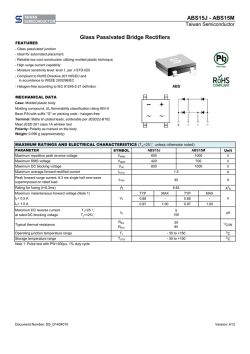
SM5100B-D HW spec V1.0.0 2
SM5100B-D GSM/GPRS Module Hardware Specification SM5100B-D GSM/GPRS Module Hardware Specification Shanghai Sendtrue Technologies Co., Ltd Page 1 of 30 SM5100B-D GSM/GPRS Module Hardware Specification IMPORTANT NOTICE COPYRIGHT NOTICE Copyright©2008, Shanghai Sendtrue Technologies Co.,Ltd. All rights reserved. TRADEMARKS Shanghai Sendtrue Technologies Co.,Ltd’s products are exclusively owned by Shanghai Sendtrue Technologies Co.,Ltd. References to other companies and their products use trademarks owned by the respective companies and are for reference purpose only. CONFIDENTIALITY The information contained here (including any attachments) is confidential. The recipient here acknowledges the confidentiality of this document, and except for the specific purpose, this document shall not be disclosed to any third party. WARRANTY DISCLAIMER Shanghai Sendtrue Technologies Co.,Ltd makes no representations or warranties, either express or implied, by or with respect to anything in this document, and shall not be liable for any implied warranties of merchantability or fitness for a particular purpose or for any indirect, special or consequential damages. NO GUARANTEE Our company will not take any responsibility for any damage caused by the customer’s abnormal operation. Please refer to specification and designing reference guide. Our company have right to modify the document according to technical requirement with no announcement to the customer. Shanghai Sendtrue Technologies Co., Ltd Page 2 of 30 SM5100B-D GSM/GPRS Module Hardware Specification CONTENTS 1 Introduction....................................................................................................................................5 1.1 Objective........................................................................................................................5 1.2 Overview ........................................................................................................................5 1.3 Related documents ....................................................................................................5 1.4 Correlative standards................................................................................................6 1.5 Version History ............................................................................................................6 1.6 Terms and abbreviations .........................................................................................7 2 Product concept.......................................................................................................................9 2.1 Key features at a glance..........................................................................................9 2.2 Functional block diagram....................................................................................... 11 3 Application interfaces and functional components ..................................................12 3.1 Pin description of the 60-pin connector...........................................................12 3.2 Power supply interface ...........................................................................................15 3.2.1 VBAT ..................................................................................................................15 3.2.2 VOUT .................................................................................................................15 3.2.3 VRTC ..................................................................................................................16 3.3 Power on/off control ................................................................................................17 3.3.1 Auto Power-on Mode ...................................................................................17 3.3.2 Power Key Mode............................................................................................17 3.3.3 Power Key Mode shutdown .......................................................................18 3.3.4 AT command shutdown ..............................................................................18 3.3.5 Low-voltage auto shutdown .....................................................................18 3.4 Boot-up control..........................................................................................................18 3.5 Sleep mode .................................................................................................................19 3.6 UART interface ...........................................................................................................19 3.7 NETLIGHT interface .................................................................................................20 3.8 Audio interface...........................................................................................................21 3.8.1 Audio input circuit ........................................................................................21 3.8.2 Audio output circuit......................................................................................22 3.8.3 Audio interface electronic characteristics............................................23 3.9 LCD interface..............................................................................................................24 3.10 Keypad interface.....................................................................................................24 3.11 SIM card interface .................................................................................................25 3.12 ADC interface...........................................................................................................27 3.13 GPIO interface.........................................................................................................27 3.14 Antenna interface...................................................................................................27 4 Physical characteristics.......................................................................................................28 4.1 Mechanical dimensions...........................................................................................28 4.2 60pin board-to-board connector.........................................................................29 4.3 Pin assignment of the 60-pin connector..........................................................30 Figures Shanghai Sendtrue Technologies Co., Ltd Page 3 of 30 SM5100B-D GSM/GPRS Module Hardware Specification FIGURE 1:SM5100B-D FUNCTIONAL BLOCK DIAGRAM ................................................................. 11 FIGURE 2:VBAT CONNECTION REFERENCE ......................................................................................15 FIGURE 3:VRTC CONNECTION REFERENCE ......................................................................................16 FIGURE 4:TIMING OF POWER AUTO MODE ......................................................................................17 FIGURE 5:TIMING OF POWER KEY MODE .........................................................................................18 FIGURE 6:TIMING OF POWER KEY MODE SHUTDOWN.....................................................................18 FIGURE 7: UART0 INTERFACE ............................................................................................................19 FIGURE 8: UART1 INTERFACE ............................................................................................................20 FIGURE 9: THE REFERENCE CIRCUIT OF NETLIGHT.........................................................................21 FIGURE 10: MICROPHONE DIFFERENTIAL INPUT .................................................................................22 FIGURE 11: MICROPHONE SINGLE-ENDED INPUT ............................................... 错误!未定义书签。 FIGURE 12: SPEAKER DIFFERENTIAL OUTPUT ....................................................................................23 FIGURE 13: SPEAKER SINGLE-ENDED OUTPUT................................................... 错误!未定义书签。 FIGURE 14: SIM PERIPHERAL CIRCUIT ...............................................................................................26 FIGURE 15: SIM CARD DETECT...........................................................................................................26 FIGURE 16: SM5100B-D MECHANICAL DIMENSIONS(UNIT: MM)..............................................29 Tables TABLE 1:CORRELATIVE STANDARDS....................................................................................................6 TABLE 2:VERSION HISTORY ................................................................................................................6 TABLE 3:TERMS AND ABBREVIATIONS.................................................................................................7 TABLE 4:SM5100B-D KEY FEATURES AT A GLANCE .........................................................................9 TABLE 5:PIN DESCRIPTION OF THE 60-PIN CONNECTOR ................................................................12 TABLE 6:VOUT PARAMETERS ............................................................................................................16 TABLE 7:VRTC PARAMETERS .............................................................................................................16 TABLE 8: RI0 STATUS...........................................................................................................................20 TABLE 9: NETLIGHT STATUS .............................................................................................................20 TABLE 10: AUDIO INTERFACE PIN DESCRIPTION ................................................................................21 TABLE 11: MICROPHONE DC INPUT CHARACTERISTICS ....................................................................23 TABLE 12: SPEAKER DC OUTPUT CHARACTERISTICS ........................................................................24 TABLE 13: LCD INTERFACE PINS DESCRIPTION .................................................................................24 TABLE 14: KEYPAD INTERFACE PINS DESCRIPTION ............................................................................25 TABLE 15: SIM INTERFACE PINS DESCRIPTION .................................................................................25 TABLE 16: ADC INTERFACE PINS DESCRIPTION ................................................................................27 TABLE 17: GPIO INTERFACE PINS DESCRIPTION ...............................................................................27 TABLE 18: SM5100B-D OPERATING FREQUENCIES.................................................................................27 TABLE 19: SM5100B-D CONDUCTED RF OUTPUT POWER ..............................................................28 TABLE 20: SM5100B-D CONDUCTED RF RECEIVE SENSITIVITY ....................................................28 TABLE 21: PIN ASSIGNMENT OF THE 60-PIN CONNECTOR ................................................................30 Shanghai Sendtrue Technologies Co., Ltd Page 4 of 30 SM5100B-D GSM/GPRS Module Hardware Specification 1 Introduction 1.1 Objective The SM5100B-D is a Dual-Band EGSM900/DCS1800[*1] GSM/GPRS module. The leading features of SM5100B-D make it ideal for virtually unlimited applications, such as Fixed Wireless Phone, Fixed Wireless Terminal and M2M applications, handsets, GSM/GPRS data card, vehicle On-Board Equipment, etc. [*1] Dual-Band EGSM900/DCS1800 is the default band of SM5100B-D, we can provide the Dual-Band GSM850/PCS1900 or Quad-Band GSM850/ EGSM900/DCS1800/PCS1900 for customization. This document describes the hardware specifications of the SM5100B-D module including hardware structure, application interfaces, main function index and performance index. So this guide helps you design various cellular applications incorporating the SM5100B-D module. 1.2 Overview The document describes the hardware interfaces in detail , which is divided into the following chapters: Chapter 1—describes the objective, related documents, version history, etc. Chapter 2—describes the basic functions and features of the SM5100B-D module Chapter 3—describes the functions, features and application of all the hardware interfaces of SM5100B-D in detail Chapter 4—describes the mechanical features and notices of SM5100B-D in detail 1.3 Related documents SM5100B-D Datasheet SM5100B-D AT Command SM5100B-D-EVB User’s Guide Shanghai Sendtrue Technologies Co., Ltd Page 5 of 30 SM5100B-D GSM/GPRS Module Hardware Specification 1.4 Correlative standards Table 1:Correlative standards No. Standard Remark [1] ITU-T Draft new recommendation V.25ter: Serial asynchronous automatic dialing and control [2] GSM 07.07: Digital cellular telecommunications (Phase 2+); AT command set for GSM Mobile Equipment (ME) [3] GSM 07.10: Support GSM 07.10 multiplexing protocol [4] GSM 07.05: Digital cellular telecommunications (Phase 2+); Use of Data Terminal Equipment – Data Circuit terminating Equipment (DTE – DCE) interface for Short Message Service (SMS) and Cell Broadcast Service (CBS) [5] GSM 11.14: Digital cellular telecommunications system (Phase 2+); Specification of the SIM Application Toolkit for the Subscriber Identity Module – Mobile Equipment (SIM – ME) interface [6] GSM 11.11: Digital cellular telecommunications system (Phase 2+); Specification of the Subscriber Identity Module – Mobile Equipment (SIM – ME) interface [7] GSM 03.38: Digital cellular telecommunications system (Phase 2+); Alphabets and language-specific information [8] GSM 11.10 Digital cellular telecommunications system (Phase 2) ; Mobile Station (MS) conformance specification; Part 1: Conformance specification 1.5 Version History Table 2:Version History Date Version History of the evolution Author 2008-12-15 V1.0 The first version published Peng.sun Shanghai Sendtrue Technologies Co., Ltd Page 6 of 30 SM5100B-D GSM/GPRS Module Hardware Specification 1.6 Terms and abbreviations Table 3:Terms and abbreviations Abbr. Description ADC Analog-to-Digital Converter ARP Antenna Reference Point ASIC Application Specific Integrated Circuit BER Bit Error Rate BTS Base Transceiver Station CHAP Challenge Handshake Authentication Protocol CS Coding Scheme CTS Clear to Send DAC Digital-to-Analog Converter DRX Discontinuous Reception DSP Digital Signal Processor DTE Data Terminal Equipment (typically computer, terminal, printer) DTR Data Terminal Ready DTX Discontinuous Transmission EFR Enhanced Full Rate EGSM Enhanced GSM EMC Electromagnetic Compatibility ESD Electrostatic Discharge ETS European Telecommunication Standard FCC Federal Communications Commission (U.S.) FDMA Frequency Division Multiple Access FR Full Rate GMSK Gaussian Minimum Shift Keying GPRS General Packet Radio Service GSM Global Standard for Mobile Communications I/O Input/Output IC Integrated Circuit IMEI International Mobile Equipment Identity Inorm Normal Current Imax Maximum Load Current kbps Kilo bits per second LED Light Emitting Diode Li-Ion Lithium-Ion MO Mobile Originated Shanghai Sendtrue Technologies Co., Ltd Page 7 of 30 SM5100B-D GSM/GPRS Module Hardware Specification Abbr. Description MS Mobile Station (GSM engine), also referred to as TE MT Mobile Terminated PAP Password Authentication Protocol PBCCH Packet Switched Broadcast Control Channel PCB Printed Circuit Board PCS Personal Communication System, also referred to as GSM 1900 PDU Protocol Data Unit PPP Point-to-point protocol RF Radio Frequency RMS Root Mean Square (value) RTC Real Time Clock RTS Request to send Rx Receive Direction SIM Subscriber Identification Module SMS Short Message Service TDMA Time Division Multiple Access TE Terminal Equipment, also referred to as DTE TX Transmit Direction UART Universal Asynchronous Receiver & Transmitter URC Unsolicited Result Code USSD Unstructured Supplementary Service Data VSWR Voltage Standing Wave Ratio Vmax Maximum Voltage Value Vnorm Normal Voltage Value Vmin Minimum Voltage Value VIHmax Maximum Input High Level Voltage Value VIHmin Minimum Input High Level Voltage Value VILmax Maximum Input Low Level Voltage Value VILmin Minimum Input Low Level Voltage Value VImax Absolute Maximum Input Voltage Value VImin Absolute Minimum Input Voltage Value VOHmax Maximum Output High Level Voltage Value VOHmin Minimum Output High Level Voltage Value VOLmax Maximum Output Low Level Voltage Value VOLmin Minimum Output Low Level Voltage Value Shanghai Sendtrue Technologies Co., Ltd Page 8 of 30 SM5100B-D GSM/GPRS Module Hardware Specification 2 Product concept SM5100B-D is a Dual-Band EGSM900/DCS1800[*2] GSM/GPRS module which supports GPRS multi-slot class10. Based on an advanced design scheme, SM5100B-D integrates the RF and Baseband onto one small PCB. It can fulfill all the functions of RF signal receiving and transmitting, Baseband signal processing and audio signal processing so that the customers can develop all kinds of their own wireless terminal products with very few extra components. [*2] Dual-Band EGSM900/DCS1800 is the default band of SM5100B-D, we can provide the Dual-Band GSM850/PCS1900 or Quad-Band GSM850/ EGSM900/DCS1800/PCS1900 for customization. Designed on a single sided PCB, SM5100B-D has a tiny dimension of 39.0mm X 35.0mm X 2.9mm, with a 60 pins board-to-board connector, which provides all hardware interfaces between the module and customers’ boards. The main hardware interfaces of SM5100B-D consist of power supply interfaces, serial interfaces, audio interfaces, SPI serial LCD interface, 4X6 matrix keypad interface, standard SIM interface, RF antenna interface, etc. It is integrated with the TCP/IP protocol and supports an extended AT commands which are very suited for developing all kinds of the customized applications. 2.1 Key features at a glance Table 4:SM5100B-D key features at a glance No. Feature Implementation 1 Power supply DC supply voltage:3.3V-4.2V Typical value:4.0V 2 Frequency bands EGSM900/DCS1800 (default) GSM850/PCS1900 (customized) GSM850/EGSM900/DCS1800/PCS1900(customized) 3 GPRS 4 Network protocols PPP, TCP/IP, USSD 5 Voice FR/EFR Echo suppression 6 SMS MO/MT/CB, support TEXT/PDU mode SMS Over GPRS 7 Current consumption Off mode:<100uA Sleep mode:2mA(Min) Shanghai Sendtrue Technologies Co., Ltd GPRS mobile station: class B GPRS multi-slot Class: class 10 Page 9 of 30 SM5100B-D GSM/GPRS Module Hardware Specification Talk mode(EGSM900,PCL=5:270mA Data mode(EGSM900,PCL=5,Class10): 400mA Peak: 2.0A 8 Temperature Normal operation: -20°C to +55°C Restricted operation: -30°C to +80°C Storage temperature: -40°C to +85°C 9 Serial interfaces UART0:support full function UART , used for AT commands by default Uart1:three-wire interface,reserved for debug 10 Audio interfaces Two analog audio input: MIC1P,MIC1N,MIC2P,MIC2N Two analog audio output: SPK1P,SPK1N,SPK2P,SPK2N 11 Real time clock & RTC Backup Support 12 Keypad 4x6 keyboard interface 13 LCD SPI serial interface 14 SIM card 1.8V、3V 15 Structure Dimensions:39X35X2.9 mm weight: 9g Module side of 60 pins board-to-board [*3] connector Fixed structure:Fixed by four pins on the grounding of shielding case 16 Antenna interface Antenna Pad 17 Software upgrade Upgrade via serial port 18 AT commands GSM 07.07, 07.05 and Sendtrue extended AT commands 19 Approvals GCF PTCRB Local Type Approval [*3] For different hardware version, the 60 pins board-to-board connector maybe will different. Please read the hardware version release notes. Shanghai Sendtrue Technologies Co., Ltd Page 10 of 30 SM5100B-D GSM/GPRS Module Hardware Specification 2.2 Functional block diagram Figure 1:SM5100B-D functional block diagram Shanghai Sendtrue Technologies Co., Ltd Page 11 of 30 SM5100B-D GSM/GPRS Module Hardware Specification 3 Application interfaces and functional components The SM5100B-D physical interface to the mobile application is made through a 60 pins board-to-board connector, which provides all hardware interfaces between the module and customers’ boards except the RF antenna interface. In this chapter, all the application interfaces will be described in detail. 3.1 Pin description of the 60-pin connector Table 5:Pin description of the 60-pin connector (see chapter 4.4 Table 21 for PIN assignment of the 60-pin connector) PIN NAME I/ DESCRIPTION DC O CHARACTERISTICS Power Supply VBAT I 4 pins of the board-to-board connector are dedicated to connect the power supply. The power supply of SM5100B-D has to be a voltage source of VBAT from 3.3V to 4.2V. It must be able to provide sufficient current in a transmit burst which may rise up to 2A in maximum. Vmax= 4.2V Vmin=3.3V Vnorm=4.0V VRTC I/O VRTC charges the backup battery when VBAT is supplied for the system; VRTC supplies the system via the backup battery when VBAT is not supplied for the system, which will avoid the system data loss. Vmax=3.3V Vmin=2.7V Vnorm=3.0V Inorm= 15uA VOUT O 2.8V output, provide the external module circuit to use, you can judge the status of the module is power-on or power-off by measuring the voltage of this pin. Vmax=3.0V Vmin=2.5V Vnorm=2.8V Imax=50mA GND Digital ground Power on/off control PWR_ON I High level voltage input for user to Power-on or Power-off the system. Users can configure it Shanghai Sendtrue Technologies Co., Ltd VILmax=0.8V VIHmin=2.2V VImax=VBAT Page 12 of 30 SM5100B-D GSM/GPRS Module Hardware Specification by software. The Auto Power-on mode is default. UART RXD0 I Receive Data TXD0 O Transmit Data RTS0/GPIO17 O Request to Send CTS0/GPIO19/ADC4 I Clear to Send DSR0/GPIO18 I Data equipment is ready, it is used to wake up the module, low voltage level is valid. RI0/GPIO46 O Ring indicator DCD0/GPIO32 O Carrier Detect RXD1 I Receive Data TXD1 O Transmit Data MIC1P MIC1N I Main audio channel input MIC2P MIC2N I Auxiliary audio channel input SPK1P SPK1N O Main audio channel output SPK2P SPK2N O Auxiliary audio channel output LCD_DATA/NBOOT/G PIO42 I/O LCD data input/output LCD_CLK/GPIO6 O LCD clock LCD_CS/GPIO8 O LCD chip-select LCD_RS/GPIO9 O LCD data/control select LCD_RST/GPIO1 O LCD reset KEY_SENSE0~ KEY_SENSE3 I Keypad line input signal, weakly pull-up internal KEY_DRIVER0~ KEY_DRIVER5 O Keypad column output signal VILmin=0V VILmax=0.8V VIHmin=2.2V VIHmax=3.2V VOLmin=0V VOLmax=0.8V VOHmin=2.2V VOHmax=3.2V Audio interfaces LCD VILmin=0V VILmax=0.8V VIHmin=2.2V VIHmax=3.2V VOLmin=0V VOLmax=0.8V VOHmin=2.2V VOHmax=3.2V Keypad Shanghai Sendtrue Technologies Co., Ltd VILmin=0V VILmax=0.8V VIHmin=2.2V VIHmax=3.2V VOLmin=0V VOLmax=0.8V Page 13 of 30 SM5100B-D GSM/GPRS Module Hardware Specification VOHmin=2.2V VOHmax=3.2V SIM interface SIM_VCC O Voltage Supply for SIM card 1.8V or supported SIM_DATA I/O SIM card data input/output SIM_CLK O SIM card clock SIM_RST O SIM reset VILmin=0V VILmax=0.8V VIHmin=2.2V VIHmax=3.2V VOLmin=0V VOLmax=0.8V VOHmin=2.2V VOHmax=3.2V SIM_DET/GPIO4 I SIM presence detect, low voltage level is SIM inserted. ADC1 I ADC VImin=0.3V VImax=5.0V ADC2 I ADC VImin=0.3V VImax=1.0V O NETLIGHT, the network status of the module. VOLmin=0V VOLmax=0.8V VOHmin=2.2V VOHmax=3.2V GPIO10 I/O General input and output port GPIO11 I/O GPIO16 I/O GPIO20/PWMB I/O VILmin=0V VILmax=0.8V VIHmin=2.2V VIHmax=3.2V VOLmin=0V VOLmax=0.8V VOHmin=2.2V VOHmax=3.2V ADC NETLIGHT NETLIGHT/GPIO26 GPIO Shanghai Sendtrue Technologies Co., Ltd Page 14 of 30 3.0V SM5100B-D GSM/GPRS Module Hardware Specification 3.2 Power supply interface 3.2.1 VBAT The power supply of SM5100B-D should be a single voltage source with VBAT ranged from 3.3V to 4.2V. As a mobile terminal conformed to the GSM criterions, in some case, the ripple in a transmit burst may cause a maximum voltage drop of 450mv while the current consumption will rise to the typical peak of 2A. So the power supply must be able to provide sufficient current. For the VBAT input, a local bypass capacitor (about 100µF, low ESR) is recommended. Multi-layer ceramic chip (MLCC) capacitors can provide a good combination of low ESR and small size but may not be cost effective. A lower cost and better effect choice is using a 100 µF tantalum capacitor (low ESR) with a small (0.1 µF) ceramic in parallel, which is illustrated in the following figure. Figure 2:VBAT connection reference Notice: A higher capacity VBAT capacitor is recommended for data transmit applications. 3.2.2 VOUT SM5100B-D provides a 2.8V power supply output for the customer’s peripheral circuit,such as LCD module. Shanghai Sendtrue Technologies Co., Ltd Page 15 of 30 SM5100B-D GSM/GPRS Module Hardware Specification Table 6:VOUT parameters Parameter Minimum Typical Maximum Unit Output voltage 2.5 2.8 3.0 V 50 mA Output current 3.2.3 VRTC The 60-pin board to board connector is dedicated for VRTC interface to connect the external backup battery. VRTC provides power supply for the SM5100B-D internal RTC unit when VBAT is not supplied for the system. SM5100B-D will charge the external backup battery via VRTC pin48 if an external backup battery is connected. If the customer doesn’t need this function, pin48 should be left unconnected. Figure 3:VRTC connection reference The parameters of the recommended external backup battery shows below: Rechargeable battery, 3.0V,2.5mAH. Table 7:VRTC parameters Parameter Minimum Typical Maximum Unit Voltage 2.7 3.0 3.3 V Current 15 15 25 uA Shanghai Sendtrue Technologies Co., Ltd Page 16 of 30 SM5100B-D GSM/GPRS Module Hardware Specification 3.3 Power on/off control SM5100B-D can be activated in two modes: Auto Power-on Mode, Power Key Mode. The user can judge whether SM5100B-D is activated by examining the VOUT output voltage level. The Auto Power-on Mode and Power Key Mode are set by firmware, the Auto Power-on Mode is default. There are three ways to Power-off the module: Power Key Mode, AT command shutdown and Low-voltage auto shutdown. Similarly, the user can judge whether SM5100B-D is powered off by examining the VOUT output voltage level. 3.3.1 Auto Power-on Mode If SM5100B-D is set to Auto Power-on Mode by firmware, it will be turned on automatically when power supply is turned on, see the following figure: Figure 4:Timing of Power Auto Mode 3.3.2 Power Key Mode If SM5100B-D is set to Power Key Mode by firmware, it will be turned on when POWER_ON key is pressed down for several seconds,see the following figure: Shanghai Sendtrue Technologies Co., Ltd Page 17 of 30 SM5100B-D GSM/GPRS Module Hardware Specification Figure 5:Timing of Power Key Mode 3.3.3 Power Key Mode shutdown If SM5100B-D is set to Power Key Mode shutdown by firmware, it will be powered off when POWER_ON key is pressed down for several seconds,see the following figure: Figure 6:Timing of Power Key Mode shutdown 3.3.4 AT command shutdown The user can set SM5100B-D to AT command shutdown mode by AT command, please read the document《AT Command_SM5100B-D》for details. 3.3.5 Low-voltage auto shutdown When the voltage level of VBAT is lower than the threshold level 3.4V preset by firmware, SM5100B-D will auto power-off. 3.4 Boot-up control The pin33 (LCD_DATA/NBOOT/GPIO42) of the SM5100B-D can be used as NBOOT pin to configure boot-up mode. When a reset signal from hardware occurs: If LCD_DATA/NBOOT/GPIO42 is low voltage level, SM5100B-D will enter “download mode”; If LCD_DATA/NBOOT/GPIO42 is high voltage level, SM5100B-D will enter “normal working mode”. After SM5100B-D boot up normally, the pin LCD_DATA/NBOOT/GPIO42 can be configured for other use by firmware. Shanghai Sendtrue Technologies Co., Ltd Page 18 of 30 SM5100B-D GSM/GPRS Module Hardware Specification 3.5 Sleep mode The sleep low consumed power mode is supported (shoud be set in NV in advance). You can enter into or exit sleep mode by controlling the status of pin38 DSR0. If the DSR0 is high voltage level, SM5100B-D enter into sleep mode If the DSR0 is low voltage level, SM5100B-D exit the sleep mode. SM5100B-D can also be waked up by hardware interrupt, phone call,SMS or data through Uart port etc. NOTICE: you can use the AT+S32K command to start the sleep mode or not. Please see the document 《AT Command_SM5100B-D》 for details. 3.6 UART interface SM5100B-D provides two UART interface: UART0 and UART1. The UART0 supports full function UART. See the following circuit: Figure 7: UART0 interface UART0 supports baud rate up to 460800 bps. It is generally used as AT command or download. By default, UART0 support 3-wire standard, CTS0, RTS0, DCD0, RI0 is invalid. If require, you can use the AT commands to set. Please see the document 《AT Command_SM5100B-D》 for details. UART1 can be configured as a standard 3-wire serial port, which is illustrated in the following figure: Shanghai Sendtrue Technologies Co., Ltd Page 19 of 30 SM5100B-D GSM/GPRS Module Hardware Specification Figure 8: UART1 interface UART1 supports baud rate up to 460800 bps. It is used to debug generally. RI0 pin is used to tell you incoming call, SMS etc. See table 8 as follows: Table 8: RI0 status Pin NO. I/O status Module status 57 RI0/GPIO46 High voltage level Idle Low voltage level Incoming call Low voltage level for 200ms, later high voltage level Receive SMS 3.7 NETLIGHT interface The pin49 is the NETLIGHT interface, used to indicate GSM network status, see the table 9 as follows: Table 9: NETLIGHT status Pin NO. I/O status Module status 49 NETLIGHT/ GPIO26 Off Power-off Always on Power-on but not register the GSM network Glitter: 100ms 3000ms off The reference circuit is as follows: Shanghai Sendtrue Technologies Co., Ltd on , Power-on and GSM network register Page 20 of 30 the SM5100B-D GSM/GPRS Module Hardware Specification Figure 9: the reference circuit of NETLIGHT 3.8 Audio interface SM5100B-D provides two analog audio input, two analog audio output, which are defined as main audio channel(MIC1P,MIC1N,SPK1P,SPK1N) and auxiliary audio channel(MIC2P,MIC2N,SPK2P,SPK2N). The user can switch between two channels and set each channel’s input/output gain by AT command. Table 10: Audio interface pin description Pin No. PIN Name Description 14 MIC1P Main audio channel positive input 12 MIC1N Main audio channel negative input 42 MIC2P Auxiliary audio channel positive input 50 MIC2N Auxiliary audio channel 18 SPK1P Main audio channel positive output 16 SPK1N Main audio channel negative output 44 SPK2P Auxiliary audio channel positive output 58 SPK2N Auxiliary audio channel negative input negative output 3.8.1 Audio input circuit The main audio channel input is connected in differential input mode to the microphone on the terminal PCB or phone handle. It will greatly suppress the common mode noise caused by the TDMA RF transmission. The main audio channel differential input is showed in the following figure: Shanghai Sendtrue Technologies Co., Ltd Page 21 of 30 SM5100B-D GSM/GPRS Module Hardware Specification Figure 10: microphone differential input The auxiliary audio channel input is same with main audio channel.The differential input mode is recommended. The recommended microphone parameters list below: z z z Electrets microphone Resistance:2.2K ohm Sensibility:-42dB(Typical) z z SNR>50dB Frequency response:conform to GSM criterions 3.8.2 Audio output circuit Two audio outputs can be connected in either differential output or single-ended output. The differential output mode will greatly suppress the common mode noise caused by the TDMA RF transmission. The differential output mode is showed in the following figure: Shanghai Sendtrue Technologies Co., Ltd Page 22 of 30 SM5100B-D GSM/GPRS Module Hardware Specification Figure 21: Speaker differential output The recommended speaker parameters list below: z z z Electromagnetic speaker Resistance:32ohm Sensibility: >110dB SPL(0dB=120uPa) z z z SNR>50dB Frequency response:conform to GSM criterions Power: from 10mW to 100mW The user also can add extra audio amplifier for better audio effect, such as National Semiconductor Corporation’s LM4890. 3.8.3 Audio interface electronic characteristics Table 11: Microphone DC input characteristics Parameter Min Common mode input voltage Adjustable input gain Typical Max Unit 0.6 1.8 V 9 42 dB Sample rate 8 kHz ADC 13 Bit SNR 62 dB Shanghai Sendtrue Technologies Co., Ltd Page 23 of 30 SM5100B-D GSM/GPRS Module Hardware Specification Table 12: Speaker DC output Characteristics Parameter Min Typical Max Unit Differential output voltage ±1.4 V Single-ended output voltage 1.4 V Common mode output voltage 1.1 V Load resistance 16 Adjustable output gain -21 Ohm 12 dB 3.9 LCD interface SM5100B-D provides a serial SPI interface that supports serial communication with LCD. These are composite pins that can be configured as GPIO ports if the user doesn’t need the LCD interface. Table 13: LCD interface pins description Pin No. Pin Name Description 33 LCD_DATA/NBOOT/GPIO42 LCD data I/O 38 LCD_CLK/GPIO6 LCD clock output 54 LCD_CS/GPIO8 LCD chip-select output 41 LCD_RS/GPIO9 LCD data/control select 39 LCD_RST/GPIO1 LCD reset 3.10 Keypad interface SM5100B-D provides a 4X6 matrix keypad interface. If the user doesn’t need keypad interface, the pins can be configured as GPIO ports by firmware. Shanghai Sendtrue Technologies Co., Ltd Page 24 of 30 SM5100B-D GSM/GPRS Module Hardware Specification Table 14: Keypad interface pins description Pin No. Pin Name Description 24 KEY_ DRIVER0 Output: the 0 column 28 KEY_ DRIVER1 Output: the 1 column 26 KEY_ DRIVER2 Output: the 2 column 23 KEY_ DRIVER3 Output: the 3 column 25 KEY_ DRIVER4 Output: the 4 column 30 KEY_ DRIVER5 Output: the 5 column 36 KEY_SENSE0 Input: the 0 line 32 KEY_SENSE1 Input: the 1 line 31 KEY_SENSE2 Input: the 2 line 40 KEY_SENSE3 Input: the 3 line 3.11 SIM card interface SM5100B-D supports both 1.8V and 3.0V SIM cards(5.0V not supported). It confirms to the ISO 7816-3 standard of the GSM 11.11 Phase 2+ and the SIM toolkit release 99 standard. Table 15: SIM interface pins description Pin No. Pin Name Description 51 SIM_VCC Voltage supply for SIM card 29 SIM_DATA SIM card data I/O 27 SIM_CLK SIM card clock 21 SIM_RST SIM card reset 35 SIM_DET/GPIO4 SIM presence detect, low voltage level is SIM inserted. The following figure is the reference circuit about SIM interface. We recommend connecting an Electro-Static discharge device (such as Semtech SMF05C) near SIM card to avoid ESD effect. The 100Ω resistors showed in the following figure should be added respectively in series on the SIM_RST, SIM_CLK, SIM_DATA line between the module and the SIM card for the impedance matching. A 10KΩ pull up resistor must be added on the SIM_DATA line connecting to SIM_VCC. Shanghai Sendtrue Technologies Co., Ltd Page 25 of 30 SM5100B-D GSM/GPRS Module Hardware Specification Figure 14: SIM peripheral circuit SIM_DET/GPIO4 is used to detect whether the SIM card is inserted. The low voltage level is SIM card inserted, high voltage level is not. The pin is low voltage by default. If the user needs to use the function, you must add a resistor pulling up to 3V voltage and use the special SIM card socket with detecting function. See the figure as follows: Figure 15: SIM card detect Notice:When using a larger PCB,the line between SM5100B-D and SIM card getting longer,then the next measures should be taken: 1) Recommend connecting a 4.7uF and a 100nF ceramic capacitor between SIM_VCC and GND; Shanghai Sendtrue Technologies Co., Ltd Page 26 of 30 SM5100B-D GSM/GPRS Module Hardware Specification 2) Recommend respectively connecting a 27pF ceramic capacitor between SIM_RST,SIM_CLK,SIM_DATA and GND. 3.12 ADC interface SM5100B-D provides three ADC interfaces, which can be used to detect the values of some external items such as voltage, temperature etc. Table 16: ADC interface pins description Pin No. Pin Name Description 6 ADC1 0.3V-5.0V Notice: The touch-panel function is supported when using PIN10 CTS0/GPIO19/ADC4 and PIN8 ADC2. 3.13 GPIO interface SM5100B-D provides several GPIO pins for users. Table 17: GPIO interface pins description Pin No. Pin Name Description 37 GPIO10 GPIO 53 GPIO11 GPIO 52 GPIO16 GPIO 56 GPIO20/PWMB GPIO 3.14 Antenna interface SM5100B-D has an RF interface impedance of 50Ω. Users can plug the antenna to the RF pad or GND pad. SM5100B-D RF characteristics is showed in Table 18~20: Table 18: SM5100B-D Operating Frequencies Default is EGSM900/DCS1800 Frequency Receive Transmit GSM850 869MHz EGSM900 925 MHz ~ 960MHz 880 MHz ~ 915MHz DCS1800 1805 MHz ~ 1880MHz 1710 MHz ~ 1785MHz PCS1900 1930 MHz ~ 1990MHz 1850 MHz ~ 1910MHz Shanghai Sendtrue Technologies Co., Ltd ~ 894MHz 824MHz ~ 849MHz Page 27 of 30 SM5100B-D GSM/GPRS Module Hardware Specification Table 19: SM5100B-D conducted RF output power Default is EGSM900/DCS1800 Frequency Minimum Maximum GSM850 5dBm±5dBm 33dBm ±2dBm EGSM900 5dBm±5dBm 33dBm ±2dBm DCS1800 0dBm±5dBm 30dBm ±2dBm PCS1900 0dBm±5dBm 30dBm ±2dBm Table 20: SM5100B-D conducted RF receive sensitivity Default is EGSM900/DCS1800 Frequency Receive sensitivity GSM850 < -105dBm EGSM900 < -105dBm DCS1800 < -105dBm PCS1900 < -105dBm 4 Physical characteristics 4.1 Mechanical dimensions The following figure shows the top view, side view and bottom view of SM5100B-D: Shanghai Sendtrue Technologies Co., Ltd Page 28 of 30 SM5100B-D GSM/GPRS Module Hardware Specification Figure 16: SM5100B-D mechanical dimensions(unit: mm) 4.2 60pin board-to-board connector The physical interface of SM5100B-D to the user board is made through a 60 pins board-to-board connector. [*4] [*4] For different hardware version, the 60 pins board-to-board connector maybe will different. Please read the hardware version release notes. Shanghai Sendtrue Technologies Co., Ltd Page 29 of 30 SM5100B-D GSM/GPRS Module Hardware Specification 4.3 Pin assignment of the 60-pin connector Table 21: Pin assignment of the 60-pin connector PIN NO. PIN NAME 2 PIN NO. PIN NAME I/O NC 1 VBAT I 4 NC 3 VBAT I 6 ADC1 I 5 VBAT I 8 ADC2 I 7 VBAT I 10 CTS0/GPIO19/ADC4 I 9 GND 12 MIC1N I 11 GND 14 MIC1P I 13 GND 16 SPK1N O 15 GND 18 SPK1P O 17 GND 20 RXD0 I 19 TXD0 O 22 RTS0/GPIO17 O 21 SIM_RST O 24 KEY_DRIVER0 O 23 KEY_DRIVER3 O 26 KEY_DRIVER2 O 25 KEY_DRIVER4 O 28 KEY_DRIVER1 O 27 SIM_CLK O 30 KEY_DRIVER5 O 29 SIM_DATA I/O 32 KEY_SENSE1 I 31 KEY_SENSE2 I 34 RESET I 33 LCD_DATA/NBOOT/ GPIO42 I/O 36 KEY_SENSE0 I 35 SIM_DET/GPIO4 I 38 LCD_CLK/GPIO6 O 37 GPIO10 I/O 40 KEY_SENSE3 I 39 LCD_RST/GPIO1 O 42 MIC2P I 41 LCD_RS/GPIO9 O 44 SPK2P O 43 RXD1 I 46 TXD1 O 45 DSR0/GPIO18 I 48 VRTC I/O 47 VOUT O 50 MIC2N I 49 NETLIGHT/GPIO26 O 52 GPIO16 I/O 51 SIM_VCC O 54 LCD_CS/GPIO8 O 53 GPIO11 I/O 56 GPIO20/PWMB I/O 55 DCD0/GPIO32 O 58 SPK2N O 57 RI0/GPIO46 O 60 VOUT O 59 PWR_ON I Shanghai Sendtrue Technologies Co., Ltd I/O Page 30 of 30
© Copyright 2026
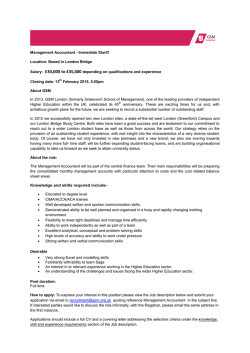
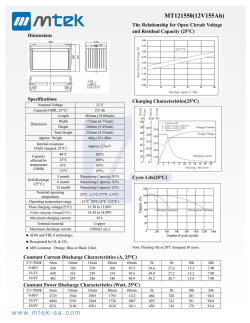
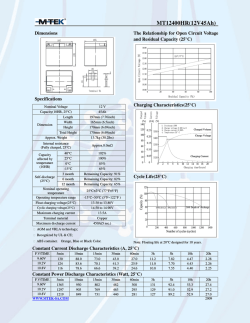

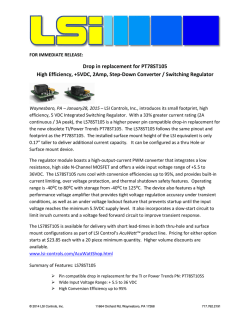
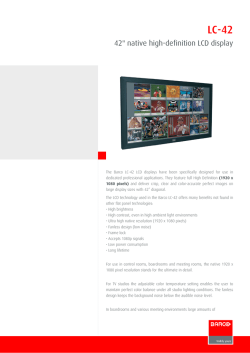
![[参考資料]](http://s2.esdocs.com/store/data/000489216_1-5bbad8a5fad3f11d19ecf30a87a397d9-250x500.png)
